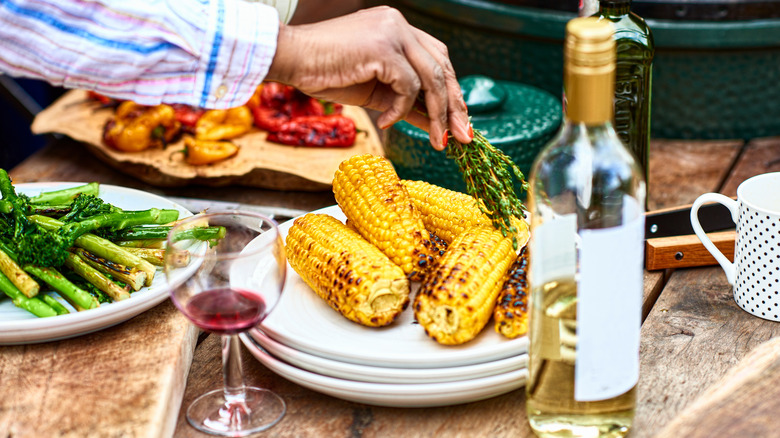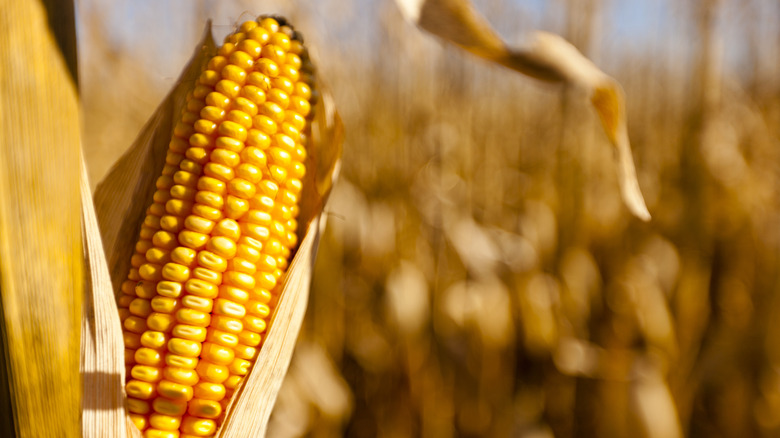Eating Corn Every Day Has An Unexpected Effect On Your Risk Of Colon Cancer
One food that rings in the best of summer barbecues and trips to the beach is corn. When corn is at its peak, the stalks can grow almost taller than some NBA players. You can't be dainty with corn. As you bite into a freshly cooked cob, your cheeks get messy with butter and salt, and you savor every sweet, juicy kernel.
Whether you think of corn as a vegetable, fruit, or whole grain, it's packed with nutrients like folate and other B vitamins. A medium ear of corn gives you a little over 2 grams of fiber to help sweep away the crud your body doesn't need, including harmful toxins. To stay healthy, you need at least 25 grams of fiber a day, which can lower your risk of heart disease, type 2 diabetes, and even constipation. Plus, a 2022 review in Nutrition and Cancer found that getting enough fiber may cut your risk of colon cancer by 25%.
Corn won't overwhelm your digestive system
Diet plays a huge role not only in your risk of colon cancer but also in maintaining your colon health if you're being treated for colorectal cancer. According to UCLA Health, researchers are looking a little more closely at how constipation might be linked to colorectal cancer. If you're often constipated, having substances sitting in your colon isn't very healthy. Fiber helps to move some of these substances out of your colon while also lowering your risk of developing benign growths that can progress into cancer.
Adding more fiber to your diet can be uncomfortable for your digestive system if you're used to eating low-fiber foods. Because corn isn't too high in fiber, it's a good way to introduce more fiber into your diet. Ever notice undigested corn in your poop? Corn is a source of resistant starch, which feeds the good bacteria in your gut. Resistant starch works similarly to insoluble fiber in that it passes through your small intestine without being digested. In a 2018 study in the International Journal of Molecular Medicine, resistant starch can reduce harmful substances in the gut and make it more difficult for tumors to develop. Resistant starch also activates proteins that trigger cancer cell death.
Corn has other health benefits
Corn might get a bad rap because of its derivatives, such as high fructose corn syrup. If you eat corn in its more natural state — on the cob — it has more nutrients than you might realize. Corn is low in calories, with just 77 calories for a medium ear of corn. You also can't eat corn on the cob quickly, making it a good food to help you eat less.
Like most vegetables and whole grains, corn is naturally low in sodium, which makes it good for people with high blood pressure. However, you'll have to watch how you season your corn, because that added salt and butter will make it less friendly for those watching their sodium levels.
Corn is a good source of lutein and zeaxanthin, two antioxidants that are good for your eye health. Both these nutrients guard your eyes against UV light and protect against macular degeneration. Corn is gluten-free, which means it's safe for people with celiac disease or gluten sensitivity. However, people with gastritis should avoid eating corn.


